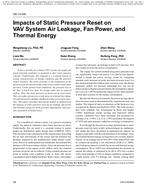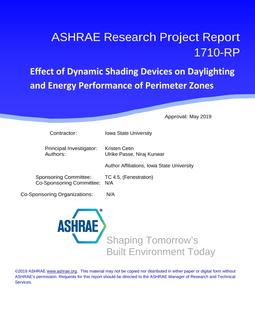Click here to purchase
Traditionally, refrigerant-based HVAC equipment has been sized to meet cooling loads. This is reflected in the way equipment is tested and rated, the way manufacturers design equipment, through industry processes like ACCA Manual S, and the way many practitioners design solutions and select equipment. This method has worked as refrigerant-based HVAC equipment has mostly been utilized to meet cooling loads while fossil-fuel combustion-based equipment has been used to meet most heating loads. As heat pumps continue to gain ground as a suitable method to decarbonize homes and buildings throughout cold regions, the cooling-centric practices of sizing refrigerant-based HVAC equipment will need to change. The focus must shift to meeting heating loads with heat pumps. Through energy modeling, this paper explores impacts of a few important factors associated with heat pump equipment, such as sizing factor and compressor lockout temperature. then compare to today’s practice for various climate zones. Findings shows a moderate 1.4 sizing factor will provide better peak load efficiency to reduce burden on utilities for both cold climate heat pump and normal heat pump. The impact of sizing factor on seasonable energy consumption is complicated depending on location and type of heat pump. Compressor lockout temperature setting is found to be another key factor can impact both peak load and seasonal energy efficiency.
Product Details
- Published:
- 2023
- Number of Pages:
- 9
- Units of Measure:
- Dual
- File Size:
- 1 file , 4.7 MB
- Product Code(s):
- D-CCC23-37
- Note:
- This product is unavailable in Russia, Belarus


